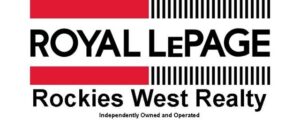If you lose a job, even temporarily, it might mean you need to ask your landlord for some rent relief. The COVID-19 pandemic has definitely negatively impacted the economy and created a lot of uncertainty when it comes to business, and to life in general. It’s important that you understand your options when it comes to rent relief.
Speak with your landlord
The best opportunity to secure your rent relief is to negotiate with your landlord. If you are financially impacted by COVID-19 and are unable to pay rent, speak with your landlord and explain your situation. There are many situations where landlords have allowed rent reductions and rent deferrals because of the coronavirus outbreak.
If your landlord does not agree to provide you with rent relief, then you can try negotiating the transfer of your last month’s rent to your current month’s rent. This is a good time to highlight any agreed terms like deferrals in writing. These contracts will help protect you as a tenant from sudden evictions and will assure the landlord that rent deferred will be paid later on in instalments.
Given the precarious economic situation that the country is in currently, rent deferral can give some individuals breathing room to those impacted by COVID-19. But it is also true that landlords might also be facing financial difficulties themselves. Landlords who have rented out their mortgaged condos might be able to get mortgage referrals but they would still need to pay maintenance fees. While you might seek out rent deferral, keep in mind that your landlord could be in the same situation as you.
When it comes to the financial government, they have not announced any measures to specifically address rent-related issues. They did implement CERB, but since this relief will take time to get to Canadians, the attention has been focused on provincial governments since rent regulation falls under its jurisdiction.
In British Columbia, there is an eviction freeze until further notice and a postponing of eviction orders which are already in place. However, there is no rent relief as tenants are still obligated
to pay their rent. The British Columbia government website encourages renters and landlords to work things out on their own.
If you’re having trouble with negotiating, then here are some more ideas for leverage in your favour:
– You have always paid your rent on time. If you have a good track record of paying your rent, then your landlord will most likely be more willing to hear you out.
– The rental property is in good condition. Keeping the property maintained will make all the difference, so you can mention this.
– You have not had any complaints from your neighbours. Being a good neighbour goes a long way, and if your property manager has not had to deal with any bad situations in the past, they will want you to stay on the property.
– Empty apartments still cost the property owner. When the apartment is vacant, then the property owner will lose money regardless. Remind them of this and how much time it also takes to find a new tenant.
Invermere District
Invermere is a community situated in eastern British Columbia. The district is permitting the Online Accommodation Platform tax revenue funds. Therefore, funds are to be received by a local Destination Marketing Organization.
Invermere, a resort on the mountain, is one out of 14 municipalities. Officially designated Invermere will receive some tax by Municipal province and the Regional Distract Tax program (MRDT). The province government collects the revenue (tax) on sales, and it defines only temporary shelters concerning the resort municipality.
The Municipal and the Regional Distract Tax program has expanded for the highest year, indicating new Online Accommodation Platform tax revenue. The new OAP tax revenue precisely comes along online platforms such as websites. Also, it not only intends to entertain temporary shelters and websites like Airbnb and Vrbo.
It is enclosing private resident-run basement suite rental and commercial accommodators who fall out to use these websites for temporary shelter listings.
The money offered to the municipalities comes about the firm condition as to how to spend it. Thus for two years until now, usage has been related to tourism to promote it.
2018 BC Tax Revenue
However, at the outset of 2018, when the province’s tax revenue accumulated and disbursement started. Municipalities of the resort have been permitted to spend a part of the Online Accommodation Platform from their MRDT funds on cheap housing.
The BC province’s officials outlined that this change bears and allocates the temporary shelters, similarly offered that Airbnb and Vrbo have. They have the power and aptitude to change the indelible rental market within the given resort municipality. The officials are now under the choice of resort municipalities to choose the allocation point for the endowment.
As of the current year, nine out of 13 officials of B.C resort municipalities, apart from Invermere-panorama, have chosen to allocate their OAP funds to their local DMOs, while on the other hand, other four have disbursed the funding to the affordable housing program.
These four municipalities who disbursed their funds to affordable housing programs entertain Tofino, Ucluelet, Whistler, and Revelstoke. Also, one resort municipalities have allocated the funds to DMOs; tourism will receive the money. However, future options remain unbound.
Invermere Council memebers
In the most recent meeting, the Invermere council members have brought the matter under their discussion dated Tuesday, October 13. A letter was submitted indicating the issue. Subjecting the council to deliver the OAP funds worth $60,000 (last two years funds). The board agreed upon releasing the funds for two years.
However, the conflict has been the part ever since regarding the right decision to split the money among affordable housing and DMO. This still leaves a question as to which partition would have been more unbiased and impartial.
“Right now, if we allocate the money to affordable housing, it’s not clear exactly what or to who we would be giving that money,” said councilor Greg Anderson.









